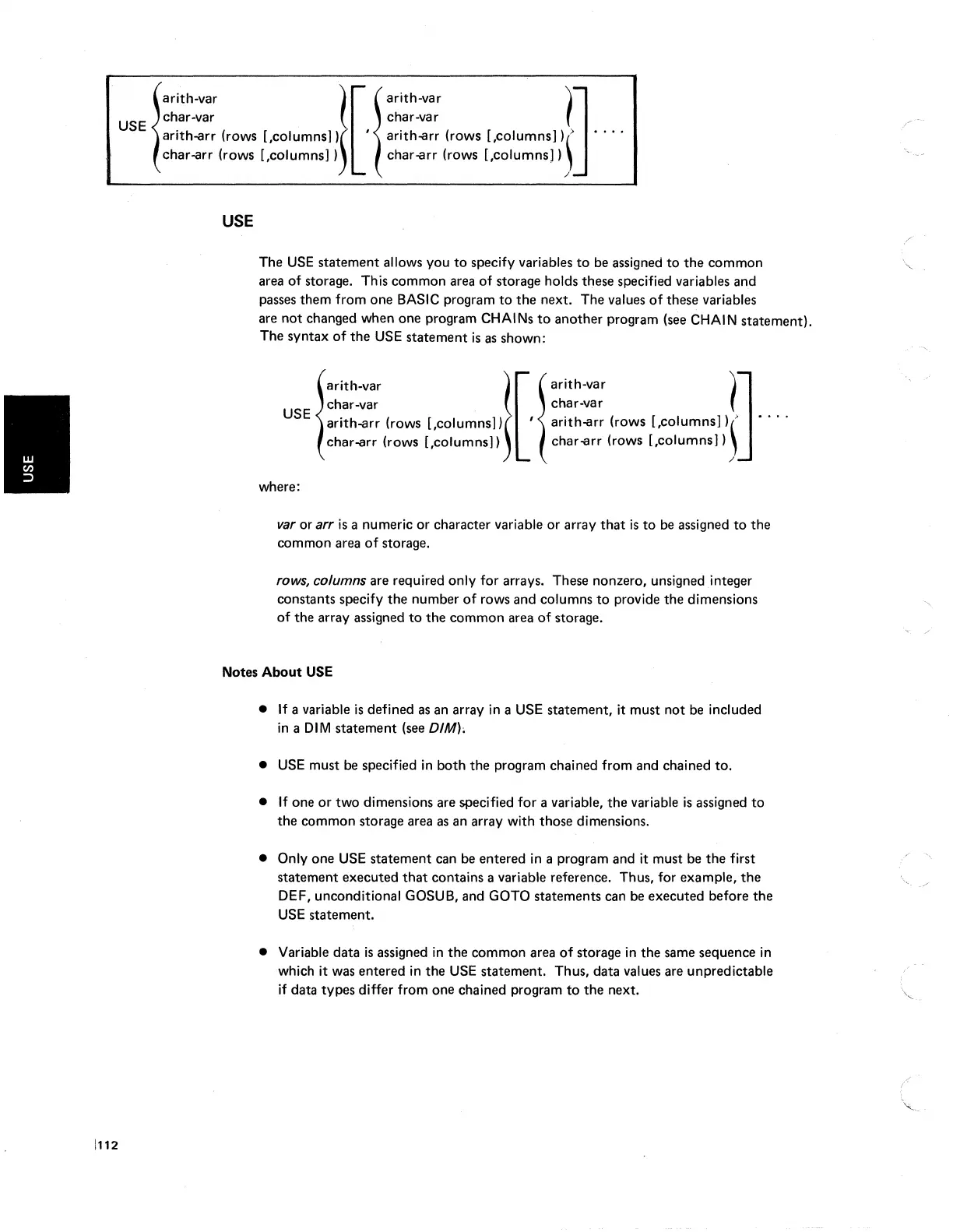1112
l
arith_var ! [ I arith-var
)]
USE char-var char-var (
arith-arr (rows
Lcolumnsl)
, arith-arr (rows
Lcolumnsl
)(
•...
char-arr (rows Lcolumnsl ) char-arr (rows
[,columnsJ)
,
/
USE
The
USE
statement allows you
to
specify variables
to
be assigned
to
the
common
area
of
storage. This common area
of
storage holds these specified variables and
passes them from one BASIC program
to
the
next. The values
of
these variables
are
not
changed when one program CHAINs
to
another program (see CHAIN statement).
The syntax
of
the
USE
statement
is
as
shown:
l
arith_var
![
I arith-var
)]
char-var char-var (
USE arith-arr (rows
Lcolumnsl)
I arith-arr (rows
[,columnsl
) (
•...
char-arr (rows
Lcolumnsl)
char-arr (rows
Lcolumnsl
) ,
/
where:
var
or
arr
is
a numeric or character variable
or
array
that
is
to
be assigned
to
the
common area
of
storage.
rows,
columns are required only for arrays. These nonzero, unsigned integer
constants specify
the
number
of
rows and columns
to
provide the dimensions
of
the array assigned
to
the common area
of
storage.
Notes
About
USE
• If a variable
is
defined
as
an array
in
a
USE
statement, it must not be included
in
a
DIM
statement
(see DIMh
•
USE
must
be
specified
in
both
the
program chained from and chained to.
•
If
one
or
two dimensions are specified
for
a variable,
the
variable
is
assigned
to
the common storage area
as
an array with those dimensions.
• Only one
USE
statement can be entered
in
a program and it must be
the
first
statement executed
that
contains a variable reference. Thus, for example,
the
DEF, unconditional GOSUB, and GOTO statements can be executed before
the
USE
statement.
• Variable data
is
assigned
in
the common area
of
storage
in
the same sequence
in
which it was entered
in
the
USE
statement. Thus, data values are unpredictable
if
data types differ from one chained program
to
the
next.
,/

